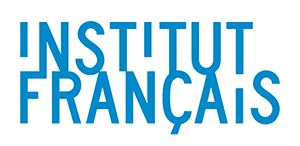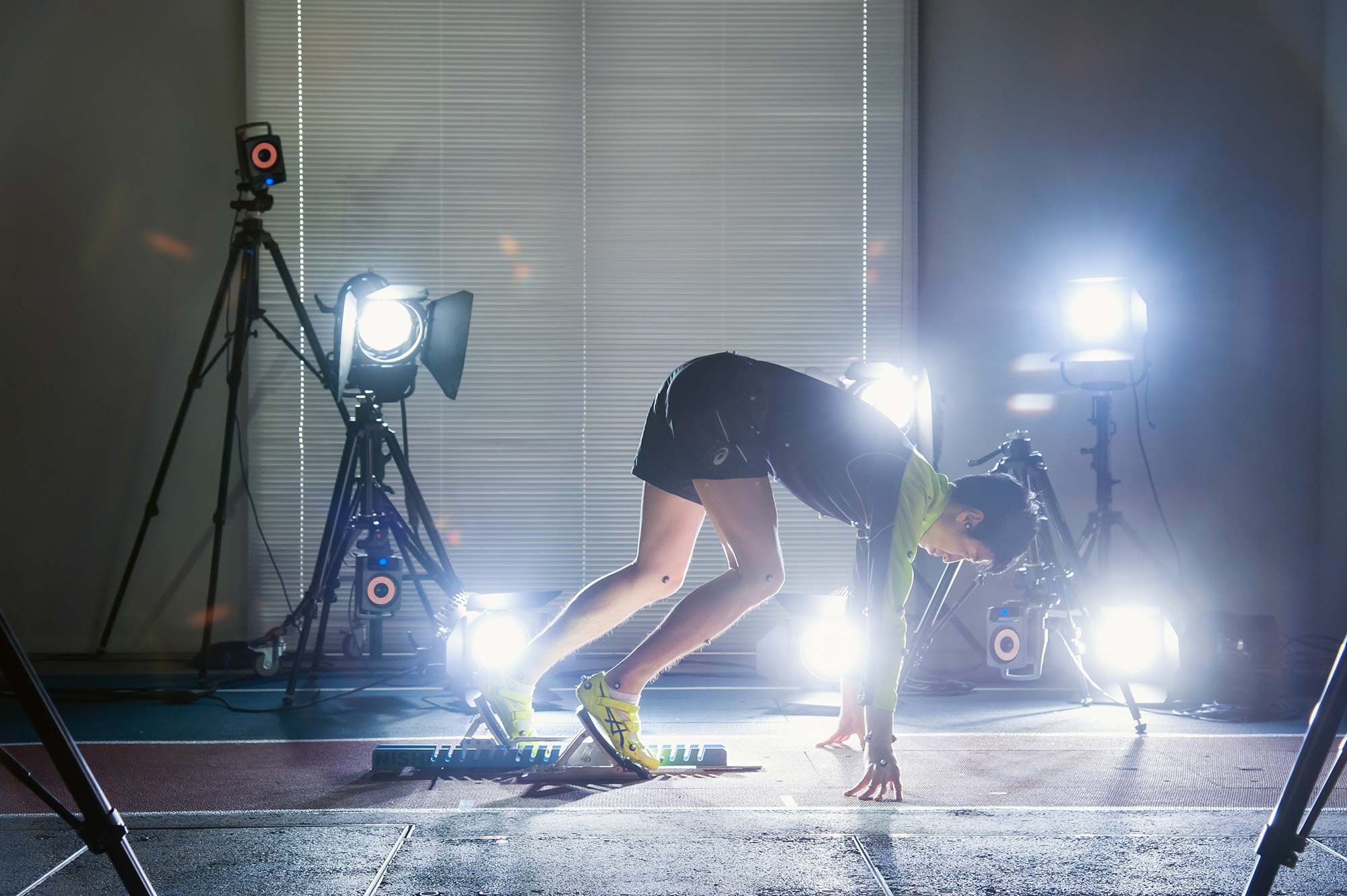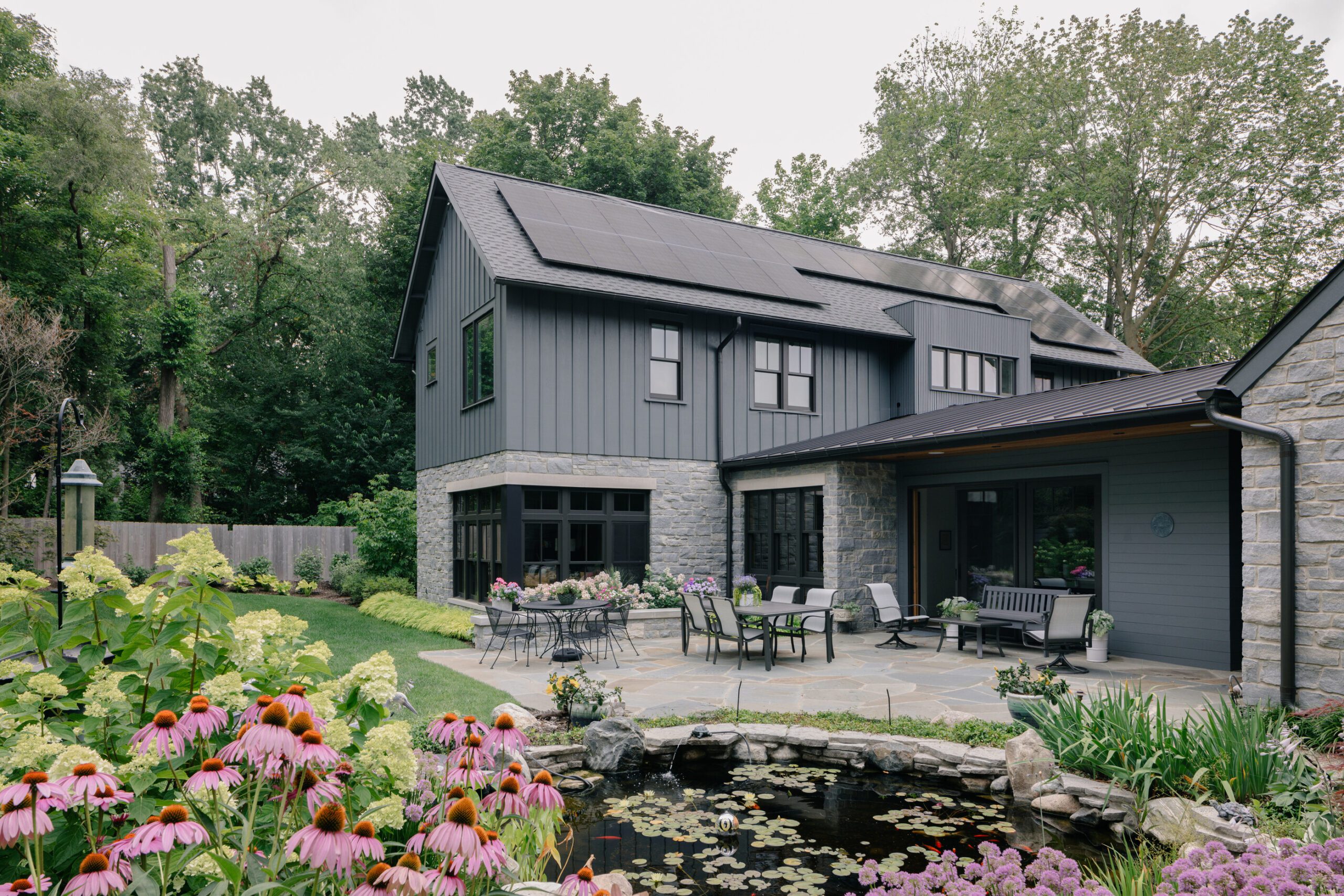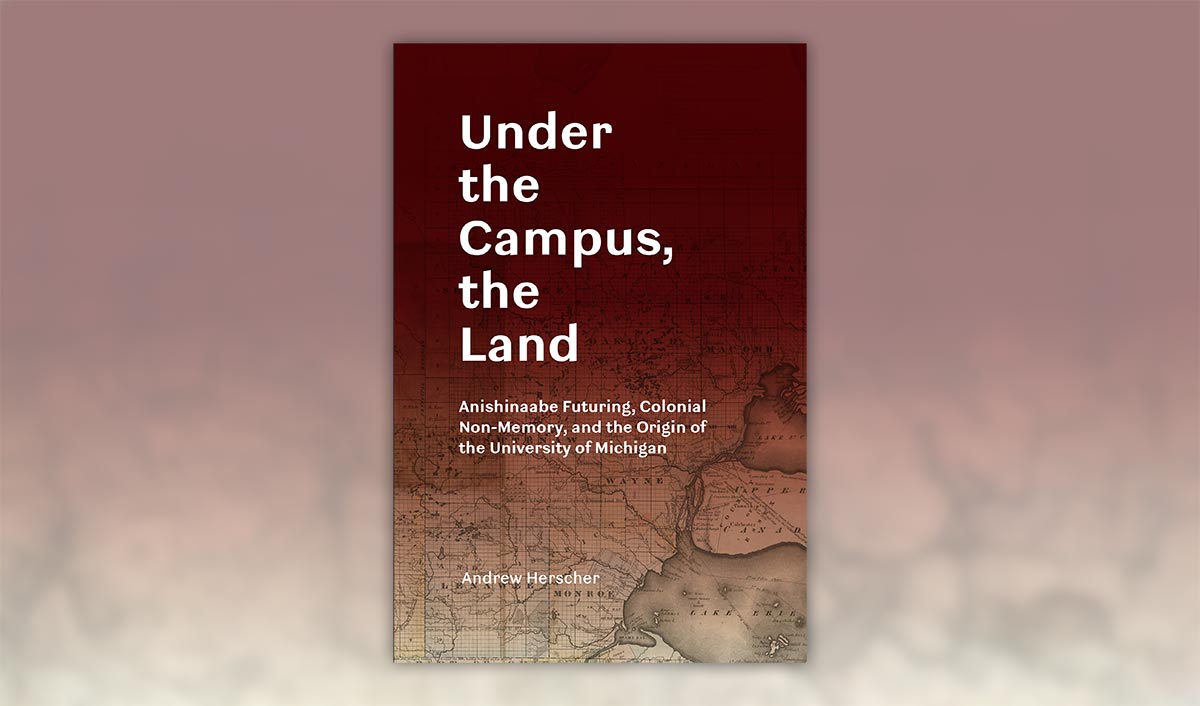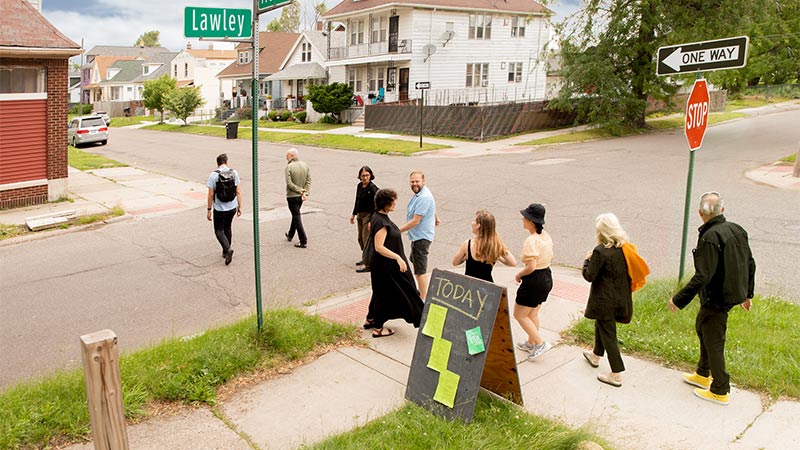
Collective Experimentation and Acts of Urbanism in Banglatown, Detroit
From June 6-10, 2022 Acts of Urbanism (AOU)/Entre Actes d’Urbanisme brought together local and international experts in performance, dance, theater, music, architecture, and urban design. Participants in the Franco-American collaboration explored place-based approaches to urban activation in Banglatown, Detroit and exchanged ideas about ways arts and culture can contribute to equitable community planning and development. Banglatown, one of the most diverse and dynamic neighborhoods in Detroit, made an ideal location for this one-of-a-kind symposium, where Professor Gina Reichert opened a series of project houses and installations throughout Power House Production for the occasion.
Anya Sirota, associate professor of architecture at Taubman College and event organizer said, “Detroit is a city whose image precedes it. Visitors often come with strong ideas about its shape, challenges, and possibilities. Some arrive with preconceived solutions. Acts of Urbanism worked to deconstruct common public misconceptions and biases by inviting a range of urban actors and design professionals into a space of frank conversation and collective experimentation.”
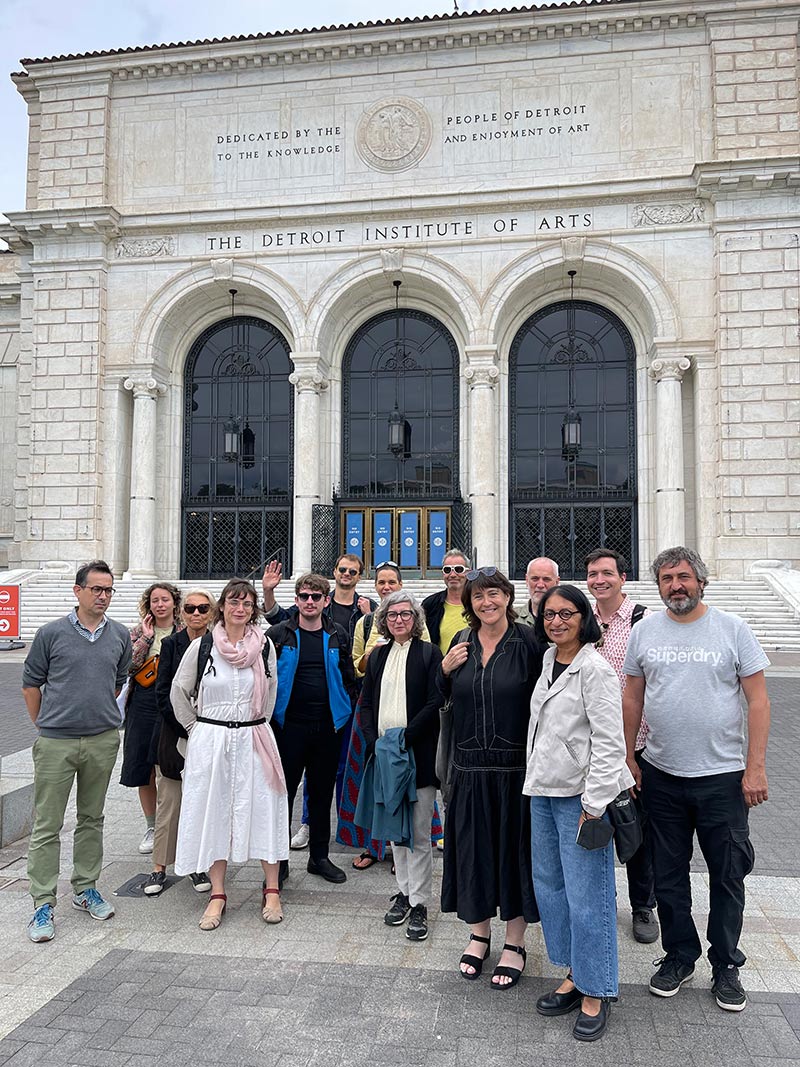 The first three days of the event were structured around short-format panel conversations and tours of the city’s unique environments to connect researchers, artists, and curators around broad contextual topics: Land, Water, and Cultural Infrastructure. Participants toured locations such as the Detroit Riverfront with Professor Maria Arquero, the Packard Plant with Professor Robert Adams, and Historic Fort Wayne with Detroit Historical Society curator Jeremy Dimmick. The event culminated in a series of experimental collaborative performances on Friday. These included everything from academic presentations to jit workshops to pop-up spas.
The first three days of the event were structured around short-format panel conversations and tours of the city’s unique environments to connect researchers, artists, and curators around broad contextual topics: Land, Water, and Cultural Infrastructure. Participants toured locations such as the Detroit Riverfront with Professor Maria Arquero, the Packard Plant with Professor Robert Adams, and Historic Fort Wayne with Detroit Historical Society curator Jeremy Dimmick. The event culminated in a series of experimental collaborative performances on Friday. These included everything from academic presentations to jit workshops to pop-up spas.
Olivier Peyricot, director of research at Cité du Design, traveled from Saint Etienne, France to participate in AOU. He found that it differed from a conventional symposium in every way imaginable. The week was built to be speculative and uncertain, leaving room for any outcomes that might develop.
“Participants were invited to self-reflexively take part in an experimental cultural ecosystem, one cultivated by local cultural actors for an expanded span. Through direct and participatory engagement, contributors to the event reflected on and speculated on ways to shape the programming potential of the city by exploring a form of eco-social design. Globally speaking, this is a truly rare situation where the devices of urban intervention were made accessible live for researchers and artists to shape and understand,” Peryricot said.
Delphine Hyvrier, Ph.D. Candidate in Industrial Arts at the University Jean Monnet & ESADSE in Saint Etienne, France, appreciated AOU as an opportunity to explore two parallel ideas: how cultural infrastructure can shed light on the geography and meaning of place and how rapid-fire inquiry and artistic creation can serve as a methodological entry point to public engagement.
Hyvrier said, “For the event, I quickly created a culturally-comparative, critical project using interviews and video recordings of the Detroit River to address questions of perception and post rationalization in the global rise of environmental apologism. Presenting the work before a Franco-American audience was both productive in terms of exchange and challenging in terms of conceptual negotiation.”
Overall, contributors to the event found that AOU provided a unique and meaningful experience that allowed participants to learn from each other and to learn by doing. All of this was made possible by the participation, creativity, and dedication of participants both local and international.
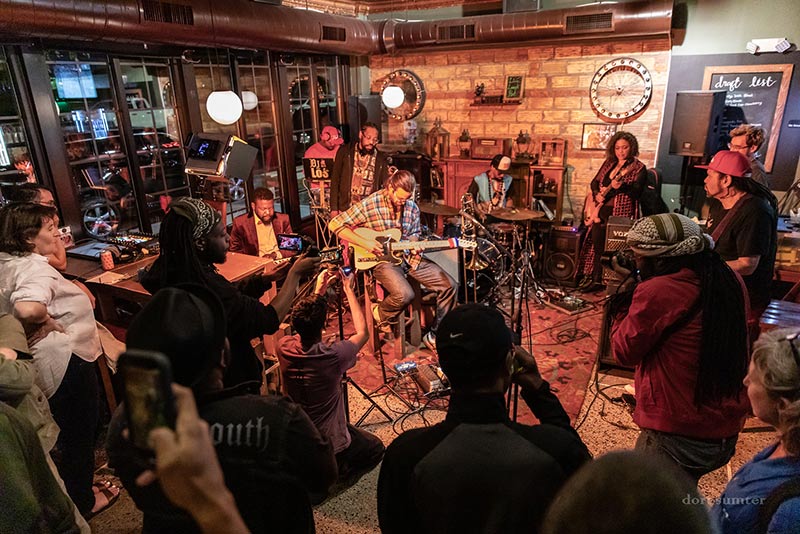
My Detroit Players at Woodbridge Pub – photo by Dori Sumter Photography
Nicolas Douay, attaché for higher education at the Embassy of France in the United States and deputy director of Villa Albertine in Chicago, said, “The transatlantic project Acts of Urbanism, explored ways performance and art-based action can inflect new urban imaginaries. Over the past two years, the exchange has connected diverse contributors through a transnational collaborative platform bringing together urban designers, performers, artists, and cultural actors to reflect on the making of contemporary cities. This French-American cooperation also enables professional conversations that will change the mutual representations, and perhaps, urban planning practices.”
Sirota recognized the many people who contributed to this transformative event, “This week was made possible through the support of the French Cultural Ministry, the Institut Français, the FACE Foundation, and the generosity of our Detroit-based partners, who galvanized a network of creative practices over a significant period of time. The open-minded contributions of our international participants, genuinely interested in exploring methods of equitable urban regeneration was also key to the success of the effort. In sum, the event helped model ways Taubman College can equitably partner with a range of institutions to create spaces for researchers and artists to engage with complex urban scenarios while retaining a level of humility and care.”
